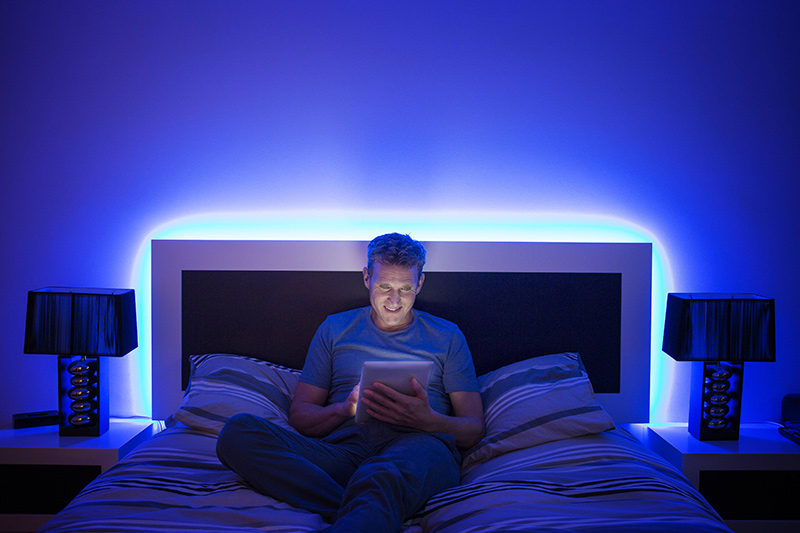
|
透视领导力是一个在线社区,商界最有思想也最具影响力的大咖会在此及时回答有关职场和领导力的问题。今天的问题是:“你每天上班前有什么习惯?”回答者是XO Group Inc.的首席执行官麦克·施泰布。 当个好领导需要毅力。一场连一场开会,频繁出差疲于奔命,每天工作12个小时以上,种种辛劳都需要身体和情感上做好充分准备。领导者还要精力集中,具备良好的判断力,因为总要做影响公司前途的艰难决策。工作日开始前的几个小时怎么过,将决定有没有足够的精力和注意力来应付一整天。 上班前的三大习惯有助于获得成功。 首先需要充足的睡眠。不管是谁,只要跟你说每晚不用睡7到8个小时,肯定是得了妄想症。一项研究显示,如果连续两周每晚只睡6个小时,在认知测试中的表现与连续两晚通宵相当。睡眠不足也会抑制海马体,也就是大脑中负责积极记忆的部分。这也是为什么疲劳时经常有消极行为。 第二,一定要锻炼身体。早晨锻炼可以增强能量,建立信心,提高认知和情感能力。花在锻炼身体上的每一个小时都有很高的回报,寿命可以延长9小时。压力大的时候可以保持头脑清醒。就像著名的跑步达人蒙特·戴维斯曾说:“跑步的时候很难陷入消极情绪。”第三,要坚持锻炼就得为接下来的一天制定清晰明确的计划。 不幸的是,大部分的晨间习惯都被前一天晚上毁了。回家感觉很累,向自己保证晚上睡个好觉。然后眼一眨又到半夜,你还在发电子邮件,在网上点些无聊的八卦链接,看哪些明星做了植发。为了解决问题,我定了个提醒睡觉的闹钟。一到时间我就关电脑,再关掉手机上的闹钟。 准备睡觉时,我会看看第二天的日程表,心里为接下来的一天设定三个大目标。为了减少早起的麻烦,我把水放在床边,整理好健身穿的衣服,想好上班需要穿什么。我把手机放在跟床有点距离的地方,避免刷手机,然后上床睡觉。 躺在床上时我会做三件事。首先在脑子里把当天过一遍,有没有实现三大目标?有没有达到我作为父亲、丈夫和领导者的期望?有哪些可以改进之处?第二,我对拥有的东西表示感激。心怀感激让人更快乐、更高效,也会考虑得更长期。第三是阅读,要么看跟工作或个人发展有关的非小说书籍,要么看有助于开阔视野的小说,两种之间经常调换平衡。前两项花60秒。第三件则一直持续到睡着。 第二天早上我很早就起床。这是一天中唯一能够真正拥有的时间,不用处理文件,没有电话,也不会分心。我踏实睡了整晚,准备好迎接新一天。我会喝点水,穿上运动服舒展筋骨,倒咖啡,开始处理最重要的三件事。孩子们醒来后,我跟家人好好相处几分钟。然后去健身房冲个澡,去办公室上班。 到办公桌时,我感觉精力充沛,对当天最重要的三件事都心中有数,也已经取得了明显的进展,这一切都靠严格遵守早晨的习惯。(财富中文网) 译者:冯丰 审校:夏林 |
The Leadership Insiders network is an online community where the most thoughtful and influential people in business contribute answers to timely questions about careers and leadership. Today’s answer to the question, “What’s your morning routine before going to work?” is written by Mike Steib, CEO of XO Group Inc. Being a good leader requires stamina. The rigors of countless back-to-back meetings, exhaustion of travel, and grind of 12-plus hour days demand every ounce of your physical and emotional reserves. Leadership also requires focus and good judgment, as you constantly make the difficult choices that will determine your organization’s success. The hours before your workday begins will determine how much energy and focus you have to win the day. There are three pillars to a successful pre-office routine. First, you need to sleep. Anyone who tells you they do not need seven to eight hours of sleep a night is delusional. In one study, people who slept six hours a night for two weeks performed in cognitive tests comparably to people who had pulled two consecutive all-nighters. Sleep deprivation also inhibits the hippocampus—the part of the brain responsible for positive memories—which is why when you are tired, you usually act negatively. Second, you have to exercise. Exercising to start your day pumps up your energy, builds your confidence, and improves your cognitive and emotional function. Every hour you exercise has a very high return on investment, adding nine hours to your life. And it gets your head right when you are stressed out: As famous runner Monte Davis once said, “It’s hard to run and feel sorry for yourself at the same time.” And third, you have to set a clear, focused plan for the day ahead. Unfortunately, most morning routines are undermined the night before. You come home tired, promising yourself that tonight, finally, you are going to get a good night’s sleep. The next thing you know, it is midnight and you are both emailing and clicking on links that promise to tell you which celebrities have gotten hair plugs. To counter this, I have a recurring bedtime alarm. When it goes off, I have to leave the computer to turn off the alarm on my phone. As I get ready for bed, I look at the calendar for the next day and mentally set three big goals for the day ahead. To reduce friction the next morning, I put water next to the bed, lay out my gym clothes, and note what I will need to wear for work. I plug in my phone away from my bed so I am not tempted to start clicking again, and hit the sack. In bed, I do three things. First, I mentally take stock of the day: Did I achieve my three big goals? Did I live up to my expectations of myself as a dad, husband, and leader? What can I do better? Second, I express gratitude for the things I have: Gratitude makes you happier, more productive, and engenders longer-term thinking. Third, I read, tending to rotate through a balance of nonfiction related to my work or personal development, and fiction that helps to broaden my perspective. The first two take 60 seconds each. The third one lasts until I fall asleep. The next morning I wake up super early. This is the only time of the day that you can truly own; there are no texts, no calls, no distractions. I got a solid night’s sleep, so I feel ready to take on the day. I drink my water, put on my gym clothes, stretch out, pour coffee, and begin to attack the most important three things I want to achieve. Once the kids wake up, I get a few minutes of quality time with my family. Then I run to the gym, shower up, and head to the office. When I arrive at my desk, I feel energized, have a clear focus on my big three important items for the day, and have already made significant progress on them, thanks to a strong morning routine. |






